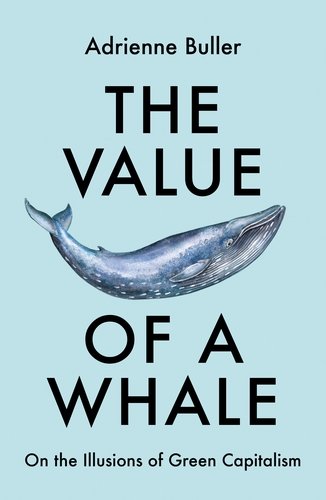
The Value of a Whale – Adrienne Buller
An elegant and data-driven and logic analyses of the myths of green capitalism. The mainstream assumption is that, because ecological costs are ‘external’ to the market, once we ‘internalize’ them, then these reflected costs will affect market forces, and then everything will be solved. Let’s just put a correct price on carbon emissions, and on ecological degradation, the argument goes, and then the market will take care of the rest (bit leap of faith when humanity’s future is on the line). Starting from the fact that the ‘market’ cannot disentangle where emissions are coming from (is ethical and/or desirable to compare emissions emitted from building railroads or hospitals in Uganda or in rural Mexico to emissions from private jets, SUVs, or yachts?). Following to how the biggest asset managers in…




